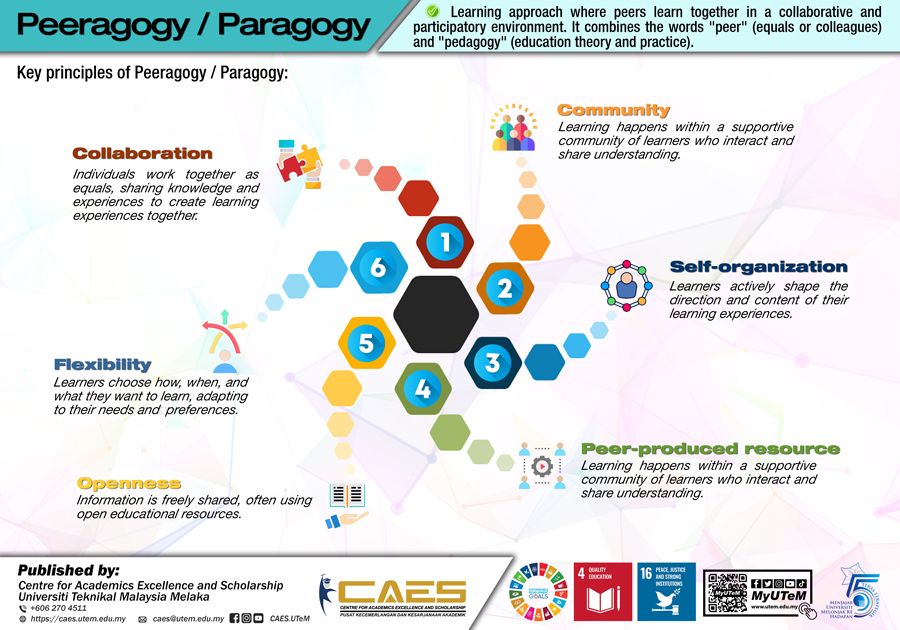INFO@CAES
May 2024

Peeragogy / Paragogy
Peeragogy is a concept that builds on the ideas of andragogy and heutagogy, focusing on learning that is driven and facilitated by peers in a collaborative and participatory environment. The term "peeragogy" is derived from the words "peer" (referring to equals or colleagues) and "pedagogy" (the theory and practice of education).
Key principles of peeragogy include:
-
Collaboration
Peeragogy emphasizes collaborative learning where individuals work together as equals, sharing their knowledge, experiences, and insights to co-create learning experiences.
-
Community
Learning in a peeragogical environment often takes place within a community of learners. The community provides support, encouragement, and opportunities for interaction and shared understanding.
-
Self-organization
Peeragogical learning environments encourage self-organization, allowing learners to take an active role in shaping the direction and content of their learning experiences.
-
Peer-produced resources
Instead of relying solely on traditional educational materials, peeragogy encourages the creation and sharing of resources by the learners themselves. This may include collaborative documents, wikis, videos, and other forms of content.
-
Openness
Peeragogy often thrives in open and transparent environments where information is freely shared. Open educational resources and open access to knowledge are central to the philosophy of peeragogy.
-
Flexibility
Peeragogy allows for flexibility in terms of learning pathways and methods. Learners have the freedom to choose how, when, and what they want to learn, adapting to their individual needs and preferences.
Peeragogy is especially relevant in the context of online and digital learning environments, where technology facilitates collaborative and peer-driven learning experiences. It aligns with the idea that learners can be both teachers and students, and knowledge is co-constructed through social interactions.
The concept of peeragogy acknowledges that learning is not confined to traditional teacher-student relationships but can be a collective and dynamic process where everyone involved contributes to the learning of the entire group.
Thu 30/5/2024 4:10 PM